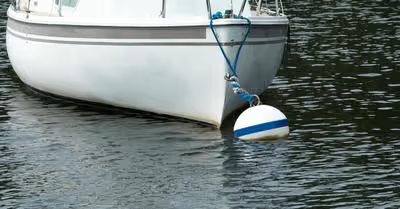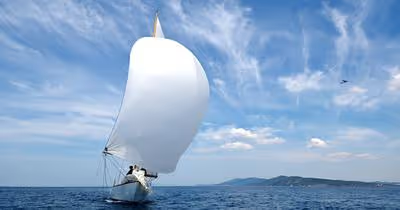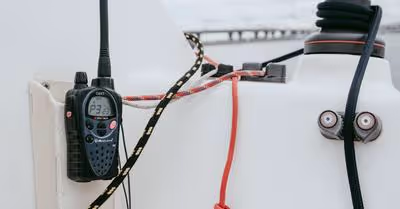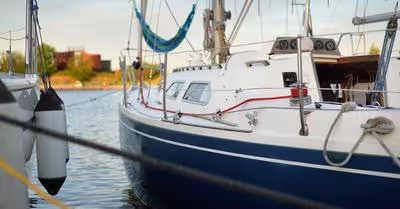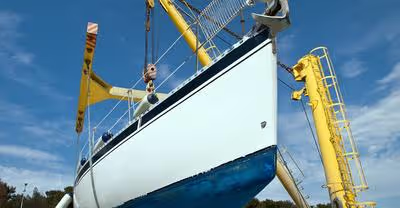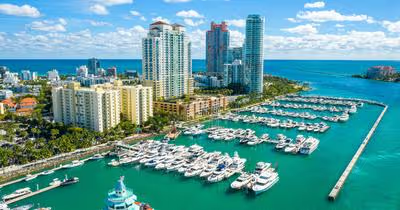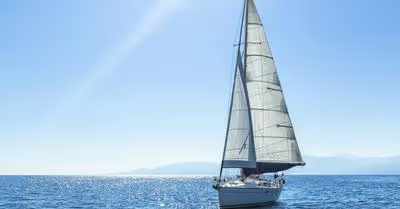Table of Contents
License to Sail
While there is no shortage of options for sailing venues these days, it is important to get familiar with the various sailing requirements and local laws on licensing along with safe sailing practices. As such, people often want to know whether a license is a requirement for sailing.
Unlike the United Kingdom and Australia, there are no clear statutes on whether a license is required to sail a boat in the US. To put it another way, in certain states, having a license to sail a boat is required, while in others, it is not. As a result, before heading out on the water, you should familiarize yourself with the state's legal requirements before you get on the boat.
You don't want to end up in hot water, now, do you? Simply put, in some states, the test for proficiency for sailing a boat is just as stringent as it is for a driver's license. This is because each state has its own set of regulations and registration procedures.
As of now, there are only eight states throughout the US that require a license for sailing. These include the states of South Dakota, Arkansas, Maine, California, Wyoming, Idaho, Arizona, and Alaska.
All of the remaining states have their own rules and licensing requirements, which vary from one state to the next. It's worth noting that just a few of these states will need you to get a valid sailing license. However, most states will need you to take a mandated safety course before you may sail a boat. Then, some states have their own rules and regulations.
For instance, in Maryland, a boating safety course is required for those born after the year 1972, which can be found at the local coast guard auxiliary. With such a large gray area to navigate, it pays for new boat owners or sailing enthusiasts to first find out the details before they set sail.
USCG Requirements
For those who do not know, the USCG stands for The United States Coast Guard Captain's License. The USCG isn't required legally when it comes to recreational sailing. It remains one of the most popular certificates for sailors who want to improve their sailing skills, particularly in terms of maritime norms and regulations. The USCG is very important to commercial sailors since it is one of the prerequisites for the rigorous restrictions about carrying passengers.
Sailboat Captain’s License
Newbie sailors need to remember that the USCG is not the same as the US Sailing Association or the American Sailing Association. The USCG issues sailing licenses, while the USSA and the ASA offer sailing certification. In other words, the USCG issues you a boating license, while the USSA and ASA teach you how to sail. So, what's the difference between ASA and US sailing licenses? Well, in short, an ASA license is for cruising, and a US Sailing license is for racing.
American Sailing Association
The ASA was established in 1983. The association has a well-known curriculum and set of standards. It works with sailing schools, charter firms, and professional sailing instructors. More than 400 ASA-affiliated sailing schools may be found across the United States, as well as in other areas of the world. So far, the organization claims to have qualified approximately 500,000 sailors. The ASA certification system comprises eight major levels of student certification, ranging from Basic Keelboat to Offshore Passage making, with a variety of specialty programs in between.
In case you don't know where to begin, then the 101, 103, and 104 should set you up nicely with the basics of sailing a boat, while the more advanced 104 class will teach you bareboat chartering for the more serious sailors out there. The certificates for bareboat charters are only a tiny part of what ASA offers. Sailing and cruising lessons, celestial navigation, and other certifications are all available. It all adds up to a good basis for getting out on the water safely and enjoying yourself.
While these certifications help you master the fundamental skills needed for bareboat chartering, it's crucial to realize that they are not necessary. Furthermore, bareboat charter certifications by themselves do not qualify you to bareboat charter.
US Sailing
US Sailing began as a yacht racing organization in 1897, and they are still the national sailing governing body to this day. ASA's basic cruising catamaran and celestial navigation courses, along with bareboat cruising courses, are mirrored in their certificates. If you want to race, they also offer a performance sailing certification. In case you were wondering if that's it. You'll be disappointed. International Yacht Training (IYT) and the Royal Yachting Association are two other options (RYA).
The IYT is a newer organization than those established in the United States, but it has a global reach with over 200 sailing schools in 54 countries. Aside from the same fundamentals taught by ASA and US Sailing, they also provide lessons for people interested in commercial boating, and it's a fantastic option for anyone interested in working professionally on boats.
If all of this seems too complicated, then there's no need to panic. If you think that these certifications will help you get a bareboat charter, the answer is no. And for those wondering whether or not having these certifications will be required to charter a boat, the answer is again no. However, if you are looking to get a solid foundation on all things sailing, you will definitely need either one of these certifications. Your best bet to getting it right is by simply reaching out to the sailing authority or local marina in your area to get all of the details.
OUPV Commercial License
The Operator of Uninspected Passenger Vessels license is the most used form of USCG license (OUPV) for sailing a boat in the US. You are allowed to operate a boat that weighs up to one hundred tons or one that carries up to 6 people when you have this license. This is why this license is often known as a 6-Pack license. This license allows you to operate leisure vessels such as those used for scuba diving, sightseeing tours, and charter fishing, which is just another advantage of getting this type of license.
You must have logged 360 days on the water since turning 16 years old to obtain this license. However, there are some strict requirements. For instance, spending a day on the water means usually spending at least 4 hours on the water. For those looking to fast-track the procedure, spending 12 hours on the water might be counted as 1.5 days. The OUPV is designed to assess your knowledge of seamanship, navigation abilities, and awareness of norms while at sea and both local and international regulations.
It is also important to note that the OUPV captain's license is not legally necessary for recreational boaters, and especially if the individual has no plans to operate a commercial vessel in the near future. The majority of state-issued boating permits are designed to improve safety and navigational abilities. However, pursuing the OUPV license is worthwhile, especially if you enjoy the sense of accomplishment that comes with such a prestigious credential.
If you want to learn how to run a vessel, you should select the USSA and ASA, but if you want a license, you should choose the USCG. A USCG license is required whether you wish to be the captain of a fishing boat as a guide or a passenger vessel. To that end, it's evident that, in the United States, recreational sailing is controlled differently based on the state, the vessel's size, and the number of passengers it's allowed to carry. Before getting out on the water, make sure you know whether you need a sailing license to operate a watercraft in your state.
Recent Articles




